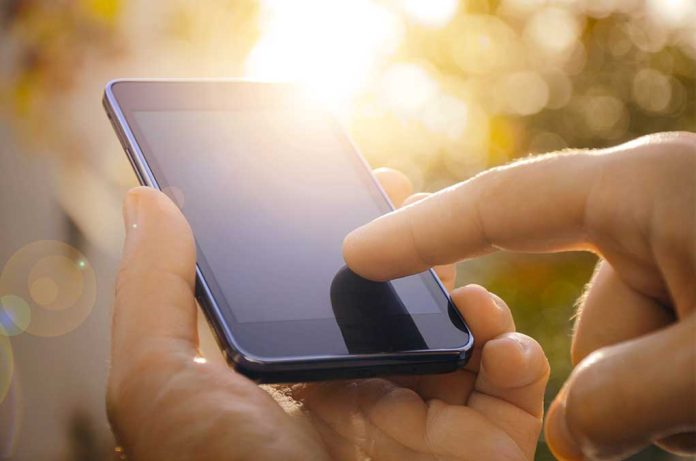
A tragic school shooting in Georgia has shined a light on the debate over cellphone bans in classrooms, as parents and educators grapple with safety concerns and educational distractions.
At a Glance
- A shooting at Apalachee High School in Georgia left four dead and nine injured.
- Students used cellphones to communicate with parents during the incident.
- 77% of U.S. schools prohibit cellphones for non-academic use, but enforcement varies.
- Debate intensifies between prioritizing emergency communication and reducing classroom distractions.
- Both Republican and Democratic governors support cellphone restrictions in schools.
Tragedy Highlights Debate
The recent shooting at Apalachee High School in Georgia has put a spotlight on the contentious debate over cellphone use in schools. As four lives were tragically lost and nine others injured, students used their cellphones to communicate with parents during the terrifying ordeal. This incident has highlighted discussions about the role of personal devices in school safety and education.
While 77% of U.S. schools already prohibit cellphone use for non-academic purposes, enforcement varies widely. The shooting has brought renewed attention to the delicate balance between ensuring student safety and maintaining a focused learning environment.
The Georgia school shooting that left four dead and nine injured last week was every parent’s worst nightmare and highlights potential downsides to efforts to ban or restrict access to cellphones in classrooms.
Read more: https://t.co/ga0K0ql7jM
— Stars and Stripes (@starsandstripes) September 9, 2024
Arguments for Cellphone Bans
Proponents of cellphone bans cite concerns about mental health and classroom distractions. A 2023 study by Common Sense Media found that adolescents receive a median of 237 smartphone notifications daily, many occurring during school hours.
“I’d hate to see another school shooting be the reason that we bring TVs into the classroom and then disrupt our children’s education,” California Governor Gavin Newsom said. “Because, in essence, that’s what a cellphone is equivalent to — bringing a TV into the classroom and disrupting the ability to get quality academic time.”
Advocates for phone restrictions also argue that during emergencies, cellphones can distract students from being aware of crucial safety instructions. Ken Trump, president of National School Safety and Security Services, warns that cellphone use during crises “can actually detract from the safety of students.”
The Case for Cellphone Access
Opponents of cellphone bans argue that these devices are crucial for communication during emergencies like school shootings. Many parents want their children to have access to cellphones for safety reasons, despite school policies.
“The fact of the matter is parents and families cannot rely on schools to effectively communicate with us in times of emergency, and this has happened time and again,” Keri Rodrigues, president of the National Parents Union, said. “There’s a whole host of reasons why parents are deeply concerned about whether or not they’re going to get timely information about whether or not their kids are safe.”
Students have used cellphones during past school shootings to alert authorities and parents. A National Parents Union survey found that parents’ primary reason for wanting their children to have cellphones at school is for emergency contact.
Finding a Balance
As the debate continues, schools and policymakers are seeking ways to balance safety concerns with educational needs. Some schools, like Grand Island Senior High in Nebraska, have implemented cellphone bans while emphasizing emergency communication protocols. At least 13 states have laws or policies restricting cellphone use in schools, with some utilizing magnetically sealed pouches to secure phones during class time.
Safety expert Ken Trump suggests that school leaders engage in open dialogue with parents and students to explain the potential dangers of cellphone use during emergencies while addressing parents’ valid concerns about communication during crises.
As our nation grapples with the dual challenges of school safety and effective education, the cellphone debate underscores the complex issues facing American schools today. Finding a solution that addresses both safety and educational concerns will require thoughtful collaboration between educators, parents, and policymakers.
Sources
- School Shooting in Georgia Highlights Debate on Classroom Cell Phone Bans
- Lifeline or distraction? Georgia shooting reignites debate over cellphones in schools
- Georgia school shooting highlights fears about classroom cellphone bans
- What Teens Want Adults to Know About Their Relationships with Smartphones
- Kids are using phones in class, even when it’s against the rules. Should schools ban them all day?

















